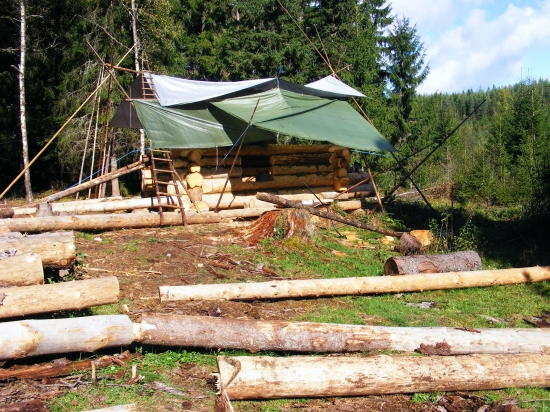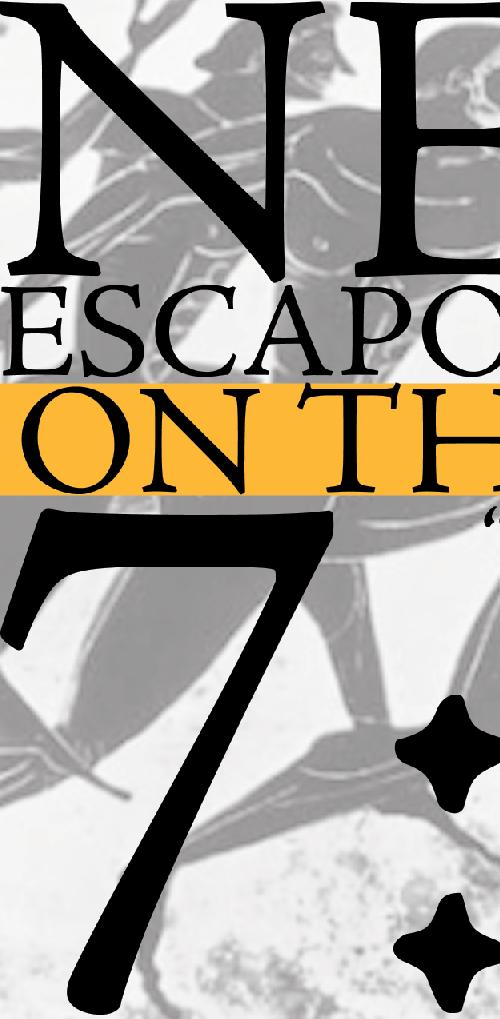The post-materialist generation
Once you give up on the idea of making money or owning a house with a huge lawn and embrace the notion that even paying off your student debt may be a Pollyanaish dream, what’s left? Doing something way more fun, obviously.
Economists have spotted that the post-millennial generation are buying and consuming less physical stuff than Boomers and Gen-Xers did in their own twenties and thirties. It’s due to financial necessity, environmental conscience, and post-materialist tastes, but it’s causing fears for the future of the economy.
But as this guy says, who cares?
The economy is a human-made thing designed for our convenience. It serves us, we don’t serve it. It’s not some dark god called Economor to whom we must make sacrificial offerings or fear its wrath: it’s just a system of boring gold-based policies we made a couple of hundred years ago (and perverted beyond recognition some ten years ago), which doesn’t even make a lot of sense anymore. And if we don’t start prioritising our natural environment as a concern, the planet won’t be able to sustain any life – human or economic.
What the conservative sees as bad times, I can’t help seeing as an exciting period in which we might actually – belatedly – stop prioritising the consumer economy and got on with something else.
Trouble is, I’m not sure we have become a post-materialist society yet. I’m a member of that post-millennial generation (and was way ahead of the curve when it came to getting rid of all my stuff and becoming a cloudgeist) and most of my peers are just as thick-headed and stuff-hungry as anyone from my parents’ generation.
Judging by popular topics in the media, it does feel like we’re heading into a post-materialist consumer period in which digital properties, educational achievement, and physical prowess are more important status symbols than the old materialist measures of success. I just worry that it’s illusory.
Buy the complete back catalogue of New Escapologist with a 10% discount today.
Or buy the complete back catalogue on PDF, with £1 off the price each issue.
Never Go Swashbuckling Without A Handkerchief
First published in New Escapologist Issue Seven
As long-serving readers of New Escapologist might know, our editor, Robert Wringham, is obsessed with handkerchiefs. That’s right: old-fashioned cotton handkerchiefs into which you blow your nose and then return to your pocket. I seriously expect to see him one day, standing on a crate in Speakers’ Corner, evangelizing over the benefits of handkerchiefs and the evils of Kleenex.
His argument is that a handkerchief is a “permanent solution to a permanent problem” and is therefore more cost-effective and better for the environment than a disposable one. I think he sees it as a parable: a robust understanding of personal finance and investing, for example, will prevent you from treading water as an employee.
If, like me, you’re a cool hipster-dipster, you will not have used a cotton handkerchief in a very long time, if ever. It strikes you as old-mannish and faintly unhygienic. But when Wringham bought me some hankies as a Christmas present last year (big spender), I was forced to reassess my opinion of them.
Hankies are fucking brilliant! They are infinitely better than disposable tissues. And if I’m honest, I never even bothered with those. My pockets would usually be stuffed with lengths of bog roll and napkins from sandwich shops. That can’t be right can it?
The main objection to handkerchiefs is that they essentially require you to put a bundle of snot in your pocket. “Wallet, keys, mucous, yup, got everything,” says Jerry Seinfeld.
But this is no different to what we do with disposable tissues. Who throws away a tissue after just one blow? Even if you don’t intend to use it again, you’ll still have to pocket that snot until you find a convenient bin.
And when you consider the multiple advantages of the cotton handkerchief over the disposable tissue, the handkerchief wins hands-down:
– They feel nicer on the nose;
– They can be washed and reused, which is better for the environment;
– You’ll never have to pay for tissues again;
– They don’t clog the washing machine with confetti if you accidentally leave one in a trouser pocket.
Here are some of the things already I’ve used my new handkerchiefs for, which I don’t think tissues would be capable of:
– I used it as a makeshift tourniquet when I injured my foot;
– Several times, I’ve used it to floss a gob of irritating food from between my teeth;
– I’ve used it to mop up non-snot-based spills;
– I’ve used it to swab sweat from my brow when pretending to work hard;
– I’ve used it as a mask to prevent fume and dust inhalation;
– A handkerchief makes a nice soft pad with which to clean an iPhone screen or the lenses of your glasses;
– I’ve used it as an insulator to wrap around a too-hot cup of take-out coffee.
Apparently, I’m supposed to make this article applicable to the “on the lam” theme of Issue Seven. Well, you could tie a handkerchief – ideally a red and white spotted one – to a stick and it’ll hold all of your worldly goods as if you were an old-fashioned hobo.
*
Jon Ransom works as a postman by day and writes secret poetry by night.
Life of a poet
Our sub-editor, Reggie, sent me this grubby poem. He finds it depressing but I like it.

Poem For My 43rd Birthday
Charles Bukowski
To end up alone
in a tomb of a room
without cigarettes
or wine–
just a lightbulb
and a potbelly,
grayhaired,
and glad to have
the room.
…in the morning
they’re out there
making money:
judges, carpenters,
plumbers, doctors,
newsboys, policemen,
barbers, carwashers,
dentists, florists,
waitresses, cooks,
cabdrivers…
and you turn over
to your left side
to get the sun
on your back
and out
of your eyes.
Buy the complete back catalogue of New Escapologist with a 10% discount today.
Or buy the complete back catalogue on PDF, with £1 off the price each issue.
World’s Most Livable Cities
Escapologists wanting to leave their home country, whether for a mini-retirement or permanent resettlement, would do well to consult the annual quality of life lists. (The one conducted by Mercer is probably the most consulted and there’s one by The Economist Intelligence Unit too.).
My personal favourite is the one published by Monocle magazine, which just came out. I have a special love for this list because it takes into account such measures as “number of bookshops” and “well-maintained swimming lakes” as well as the usual quality of life indicators (like crime rate, infrastructure, and cost of living).
I notice that Montréal has fallen from 19th place to 24th in the list since I moved here two years ago. Probably just coincidence.
Here is 2012’s top ten most livable cities according to Monocle:

The rankings continue thusly: Kyoto (11), Fukuoka (12), Hong Kong (13), Paris (14), Singapore (15), Hamburg (16), Honolulu (17), Berlin (18), Vancouver (19), Madrid (20), Barcelona (21), Portland (22), San Francisco (23), Montréal (24) and Geneva (25).
Buy the complete back catalogue of New Escapologist with a 10% discount today.
Or buy the complete back catalogue on PDF, with £1 off the price each issue.
Monumental
We quit our jobs, sold our stuff and ran to the woods to be free.
I’ve been enjoying the exploits of this Danish family living like Thoreau in the woods. They built a log cabin called The Monument and now they live in it.
I am a big fan of this very literal kind of Escapology. There’s no messing around with automated companies or clinging on to expensive creature comforts. They literally escaped and started over.
When I started out with New Escapologist, I was inspired by the Bohemians and Walden and Eco Villagers like my contacts at Findhorn, but I knew very well I’d have difficulty sacrificing certain Bourgeois comforts.
I now live a spartan, quasi-Bohemian life in a cheaper foreign city. I own barely anything, earn and spend next to nothing, but I was too chicken to say goodbye to things like central heating and WiFi and privacy.
But as Larry Niven said, F x S = K. The more freedom you want, the more securities you must sacrifice. The key, I suppose, is finding the right balance. You’ll not regret it.

Buy the complete back catalogue of New Escapologist with a 10% discount today.
Or buy the complete back catalogue on PDF, with £1 off the price each issue.
Teaser

Buy the complete back catalogue of New Escapologist with a 10% discount today.
Or buy the complete back catalogue on PDF, with £1 off the price each issue.
Towards Zero Waste

I read a few weeks ago that Wales is almost halfway to becoming a ‘zero waste’ society. With 48% of their household garbage being recycled, they’re doing better than almost any other Western country.
Reducing one’s impact on the environment is one of the key aims of minimalism (and minimalism is a key tenet of Escapology), so my partner and I got to thinking about how we could nudge our own household closer to the zero waste target.
We were already casual recyclers of the usual materials (plastic, glass, paper, cans), but we were still producing a bag of miscellaneous garbage every week. These are the steps we took to further minimise what we send to landfill:
– We checked the details of what can be recycled in our neighbourhood. It turns out that Tetrapacks (milk and juice cartons) can be recycled but we’d always ignorantly binned them. So now we recycle those.
– Our area has no municipal compost programme and we have no garden, so a sizable portion of our waste has been vegetable matter. My girlfriend’s parents, however, live in an area with a compost programme, so we keep it all in a Tupperware box, which I then carry to their house on our weekly visit.
– I never used to bother recycling small pieces of paper like bus tickets and grocery receipts. Fiddly, innit? But now I do.
– We’ve committed absolutely to reusable grocery bags. We never accept a single-use plastic bag from a shop now. Ever! I hate carrier bags. When they’re not suffocating babies or choking sea turtles, they’re hanging forlorn and muddy in a tree. Let’s stop using them.
The only things left in our garbage at the end of the week are non-recyclable plastic wrappers, beer bottle tops, and egg shells. It can be squished down to the size of a tennis ball.
Garbage management is not going to help directly in your escape, but looking after the environment will help us all to live in a better world. Like they do in Wales.
Buy the complete back catalogue of New Escapologist with a 10% discount today.
Or buy the complete back catalogue on PDF, with £1 off the price each issue.



